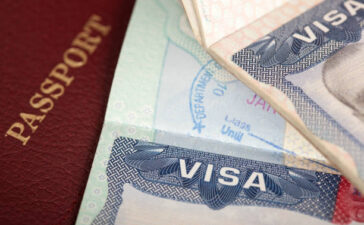Canada has a strong reputation as a safe, welcoming country where Family-Based Immigration to Canada can thrive. As a result, immigration has helped to counter aging demographics and fuel economic growth.
Advertisement
Through the family sponsorship class of immigration, citizens and permanent residents can sponsor their spouses or common-law partners, children, parents and grandparents to become Canadian residents.
Introduction to Family-Based Immigration
Family is a cornerstone of Canada’s immigration system and one of the most common pathways for Canadian citizenship. With programs available to all groups including students, professionals and refugees, bringing family members to Canada is often the fastest route to permanent residency.
Spouses, partners, and dependent children are eligible for sponsorship under the Family Class, as are parents and grandparents in specific cases. Sponsored family members are granted the same rights and responsibilities as all Canadian citizens. They may work, study and live anywhere in the country. They are also entitled to receive health care coverage and a government-issued identity card.
For many, immigrating to Canada is a dream that is fulfilled by the family members they bring with them. The family-based immigration system is designed to enable this goal and is a vital component of the Canadian economy.
Unlike many other OECD countries, Canada does not restrict family reunification programs by setting caps or limits on the number of sponsored relatives that can be brought in each year. However, in order to be eligible to bring family members to the country, a Canadian citizen or permanent resident must sponsor them and sign a contract pledging to support their sponsored spouse or children financially for a specified period of time.
Advertisement
In addition, a resettled refugee may apply to have their non-accompanying family members join them after their one year window of opportunity has passed (if they were declared at the time of their initial application). These are among the few avenues through which families can be reunified in Canada.
Sponsorship Eligibility
To sponsor a relative, you must meet certain sponsorship requirements set out by Immigration, Refugees and Citizenship Canada (IRCC). You must be a citizen or permanent resident of Canada and must have sufficient income to support the sponsored family member(s) while they are living in Canada.
You must also agree to provide financial support for the sponsored family members after they become Canadian citizens or permanent residents.
In the case of spousal sponsorship, you must be in a genuine relationship with your spouse or common law partner and the two of you must both want to sponsor the other person. If you are sponsoring a child, they must be your biological child or a child that the two of you have legally adopted.
For other categories of sponsorship, such as parents and grandparents, there are minimum income requirements that sponsors must meet, based on their family unit size. Sponsors must have Notices of Assessment from the Canada Revenue Agency to show that they have met the minimum income requirement for each family member.
If you are unable to meet these sponsorship requirements, there may be other ways for you to bring your family to Canada. You could look into refugee sponsorship programs or other economic immigration options. Our team is here to help you determine which options are best for you and your family.
Sponsored Relatives
Canada recognizes the importance of keeping families together and offers a variety of pathways to allow family members to sponsor one another to come live in the country. These pathways are mainly focused on the sponsorship of spouses, common-law or conjugal partners and dependent children. However, some immigration programs also give the opportunity to bring parents and grandparents.
It is important to note that anyone who wishes to sponsor a family member must meet certain requirements set out by Immigration, Refugees and Citizenship Canada or IRCC.
The sponsorship process involves a sponsor agreeing to support their sponsored relative financially once they have obtained permanent residency in Canada, an undertaking that does not disappear when the sponsored person becomes a citizen or if they move away from the country for any reason.
Those who wish to sponsor their parents or grandparents must first demonstrate that they can support the sponsored family members by meeting minimum necessary income levels for the size of the family unit and agreeing to repay any social assistance benefits received by their sponsored relatives.
In addition to this, sponsors of parents and grandparents will also need to complete a sponsorship agreement with IRCC that is different from the sponsorship agreement for sponsored spouses and dependent children.
Those who qualify for Express Entry and other economic classes can include their parents and dependent children in their initial application to help speed up the process of bringing them to Canada. They will not, however, receive their visas to travel until after they have received their permanent resident cards.
Sponsorship Process of Family-Based Immigration to Canada
One of the core goals of Canada’s immigration system is to reunite families. The Family Class Sponsorship program offers a path to do just that, by allowing Canadian citizens. And permanent residents to sponsor specific family members to become Canadian permanent residents.
In addition to the financial requirements, sponsors must meet criminal and medical screenings. They must not be in jail or prison. Have a criminal record of sexual offences or other serious crimes against a family member. Or a crime committed against a person of a “protected class” such as a refugee, asylum seeker or protected person with a disability.
They must not be receiving government social assistance. Such as Employment Insurance or the Canada Emergency Response Benefit (CERB). And must not have been convicted of a crime that caused a loss of life.
The sponsorship process can take up to a year, depending on the type of relative being sponsored. Once the application has been approved, the sponsored family member will be able to work. Study and live in Canada as a full citizen.
Challenges and Considerations
Canada has a long history of welcoming immigrants for family-based sponsorship. The country’s thriving economy and safe cities make it an attractive place to raise a family. However, the process of reuniting families is not without its challenges.
The first few years can be especially difficult as newcomers adjust to their new home. Families may struggle with language barriers, housing issues, access to public services, cultural differences, prejudice, and other challenges. Health professionals can help families cope with these problems by being aware of them and addressing them as they arise.
While some people oppose increasing immigration to Canada, others believe that a higher population will improve the country’s economic growth. In addition, many industries and settlement organizations support higher immigration levels as they will benefit from a larger workforce.
Moreover, more working-age Canadians will be able to pay for healthcare and other social services. Without more immigrants, Canada would have a hard time affording these costs.
In addition, Canadians are very tolerant of other cultures and beliefs. As a result, immigrant communities can thrive and become an integral part of the national fabric. They can also contribute to the country’s economic growth by bringing managerial skills and financial capital to businesses.
Some people worry that higher immigration will increase the number of welfare recipients. And create a strain on the social system. However, recent polls show that the majority of Canadians believe that immigration has a positive impact on the nation’s economy. The government has successfully managed previous increases in immigration with minimal public backlash.




